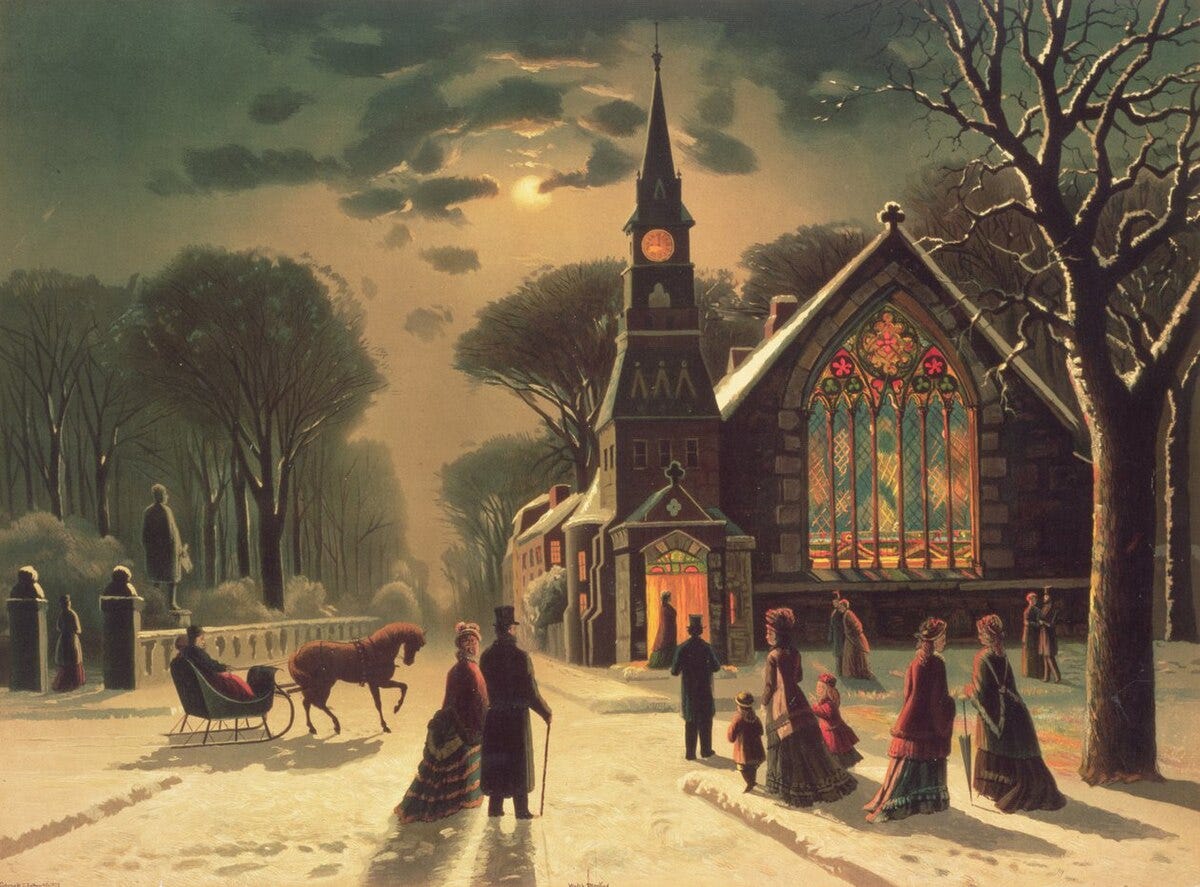On the morn when evey man remembers the time
that our dear Lord for our doom to die was born,
in every home wakes happines on earth for His sake
So did it there on that day with the dearest delights
“Sir Gawain and the Green Knight”
“It’s Christmas!” as old Scrooge said, bemused, when he discovered the Three Spirits had all worked on a single night. I may not be as joyful as the former-covetous-old-sinner was then, but I am quite bemused.
Making by the Law in Which We’re Made began in early February, so that it now nears one year of age. This time last Christmas I barely knew what a “Substack” was (I still have to explain to my friends that it is like OnlyFans for writers). Now look at how far we have come! We are almost a hundred subscribers now. That is two or three full classrooms, joined together to discuss whether flying to Mordor was ever a good idea (no) or whether writing is the one proper medium for fantasy (kind of).
And that is nice. Very nice indeed.
I can’t say to each of you how grateful I am.
I have also received this last days — nothing as powerful as a Christmas miracle, but perhaps a Christmas surprise. I recently (and finally) began reading C. S. Lewis’s God in the Dock, at a slow pace, letting chance and changing desire tell which essay to read that day. And by coincidence (or not), one of the first parts of the book I opened was the two essays Lewis wrote on Christmas.
They are not on the least jolly. Lewis, who by the time of writing was nearing his sixties, is tired and frustrated by the “commercial racket” — this near hysterical, exhausting, involuntary race of shopping that leaves all “physically worn out by weeks of daily struggle in overcrowded shops, mentally worn out by the effort to remember all the right recipients and to think out suitable gifts for them.”1
Even if most of us can relate, Lewis still comes across as a bit of a Grinch. A very diferent image from, say, Tolkien writting Father Christmas Letters to his children every year. But we must not judge a man too harshly for his frustrations (specially on the internet, where ranting is such a prolific genre) — and we must remember that Lewis was, for most of his life, a bachelor. I like to imagine that the marriage to Joy Davidman, shortly after writing Xmas and Christmas, and the presence of the Gresham children may have softened him a bit.
For, as Lewis himself says, there are three things we mean when we say Christmas: a religious Christian festival; a popular holiday, occasion for merry-making and hospitality; and the dreaded commercial racket. The first one (as Lewis was also found of saying) is a subject about which I have little to say and much to learn. The third one we all know, directly or indirectly. But the second one remains, in a weird — but not less beautiful — space between the other two. A time for celebration, though we may not exactly know the reason:
In spite of all sorts of intellectual irritations and pedantic explaining away, human beings will almost certainly go on observing this winter feast in some fashion. If it is for them only a winter feast, they will be found celebrating it with winter sports. If it is for them only a heathen feast, they will keep it as heathens do. But the great majority of them will go on observing forms that cannot be so explained; they will keep Christmas Day with Christmas gifts and Christmas benedictions; they will continue to do it; and some day suddenly they will wake up and discover why.
“On Christmas” G. K. Chesterton
Merry Christmas, and God bless Us, Every One.
“What Christmas Means to Me”, C. S. Lewis





Merry Christmas!